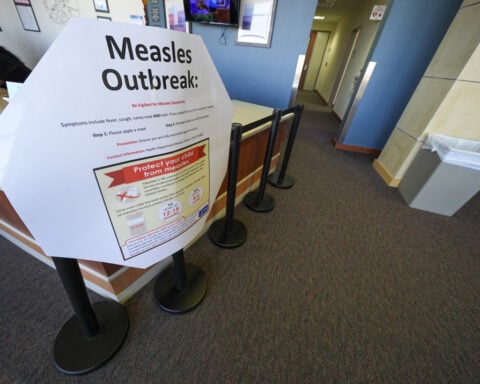People have complained about headaches specifically from red wine for thousands of years, but science is only now closing in on an explanation for the phenomenon. A new study proposes that an antioxidant found in grape skins hampers the body’s processing of alcohol, allowing buildup of a toxic compound that triggers migraines in susceptible drinkers.
While all alcoholic beverages can cause headaches, red wine appears particularly linked to painful “wine headaches” arising shortly after a glass rather than next-morning hangover. Researchers have puzzlingly struggled to account for why despite red wine containing many ingredients also found in other foods not notoriously headache-inducing.
“This puzzle has been around for literally thousands of years,” said UC San Francisco headache specialist Dr. Morris Levin. “There are a lot of ingredients in wine that could conceivably cause a headache.”
The current leading theory points generally to so-called polyphenols – tannins and antioxidants abundant in red wine. But scientists have found no clear specific chemical culprit or biological mechanism explaining how wine could uniquely aggravate headaches. https://www.lapost.com/eat-drink-and-still-lose-weight-science-explains-europes-slimming-effect/
A new study proposes a multi-step process initiated by quercetin – an antioxidant grape skins produce to protect ripening fruit from sun exposure. Researchers suggest quercetin gums up pathways processing alcohol in the body, allowing toxic byproduct acetaldehyde to accumulate.
People carrying a common genetic variant across East Asia face similar headaches, flushing, and nausea due to poor alcohol metabolism and acetaldehyde buildup. “In small amounts, we can handle it,” said UCLA addiction expert Dr. Lara Ray. “But when alcohol isn’t metabolized properly, the body shows this aversive response.”
Researchers confirmed quercetin does inhibit alcohol metabolism in lab tests. Study co-author Andrew Waterhouse dubbed quercetin essentially “sunscreen for grapes,” generated when sunlight strikes vine leaves.
While the quercetin theory remains hypothetical absent in-person trials, experts called it “compelling.” “It’s a really ingenious idea and very plausible,” Ray said regarding the proposed biological mechanism.
Some scientists struck cautionary notes, however. Yale’s Vasilis Vasiliou observed lab reactions don’t always manifest identically in living subjects. He highlighted past evidence suggesting quercetin actually protects against alcohol toxicity rather than enabling it.
Nonetheless, the research edges science closer towards solving the ancient riddle of red wine headaches after millennia of speculation. Researchers next aim to test whether wines high in quercetin prove more headache-inducing for volunteers. Confirming the role of grape antioxidants in the phenomenon could enable vintners to produce less migraine-triggering wines.

 Trump has begun another trade war. Here's a timeline of how we got here
Trump has begun another trade war. Here's a timeline of how we got here
 Canada's leader laments lost friendship with US in town that sheltered stranded Americans after 9/11
Canada's leader laments lost friendship with US in town that sheltered stranded Americans after 9/11
 Chinese EV giant BYD's fourth-quarter profit leaps 73%
Chinese EV giant BYD's fourth-quarter profit leaps 73%
 You're an American in another land? Prepare to talk about the why and how of Trump 2.0
You're an American in another land? Prepare to talk about the why and how of Trump 2.0
 Chalk talk: Star power, top teams and No. 5 seeds headline the women's March Madness Sweet 16
Chalk talk: Star power, top teams and No. 5 seeds headline the women's March Madness Sweet 16
 Purdue returns to Sweet 16 with 76-62 win over McNeese in March Madness
Purdue returns to Sweet 16 with 76-62 win over McNeese in March Madness








